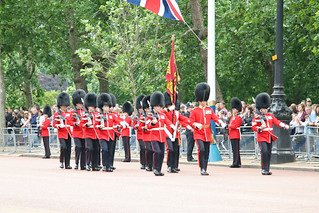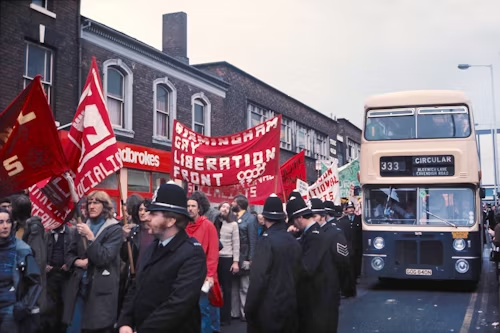UK Cultural Events: A Year-Round Celebration of Arts and Heritage
The United Kingdom boasts a vibrant calendar of cultural events that reflect its rich history, diverse society, and dynamic arts scene. From grand festivals and historic celebrations to contemporary art exhibitions and literary gatherings, the UK offers a plethora of cultural experiences throughout the year. This article explores some of the most significant and popular cultural events in the UK, providing insights into their histories, unique characteristics, and lasting appeal.
1. The Edinburgh Festival Fringe
The Edinburgh Festival Fringe, held every August in Scotland’s capital, is the world’s largest arts festival. Established in 1947, the Fringe was initially a platform for artists who were not invited to the Edinburgh International Festival. Today, it has grown into a major cultural event that features thousands of performances across various genres, including theater, comedy, dance, music, and spoken word.
The Fringe is known for its open-access policy, allowing any performer with a story to tell and a venue to perform in to participate. This inclusivity fosters a diverse and dynamic program, ranging from experimental and avant-garde pieces to mainstream productions. The festival transforms Edinburgh into a bustling hub of creativity and innovation, attracting millions of visitors each year who come to experience the vibrant atmosphere and discover new artistic talents.
2. Glastonbury Festival
Glastonbury Festival, held in Somerset every June, is one of the UK’s most iconic music and performing arts festivals. Founded in 1970 by farmer Michael Eavis, the festival has grown from a small gathering into a global cultural phenomenon. Glastonbury features a diverse lineup of music acts, spanning genres such as rock, pop, electronic, and folk, as well as theater performances, circus acts, and art installations.
The festival is renowned for its unique atmosphere, which combines a sense of community with a commitment to environmental sustainability. Attendees camp on the vast festival grounds, creating a temporary city dedicated to creativity and expression. Glastonbury’s eclectic mix of performances, its legendary stages (such as the Pyramid Stage and the Other Stage), and its commitment to social and environmental causes make it a standout event in the UK’s cultural calendar.
3. The Proms
The Proms, officially known as the BBC Proms, is an annual eight-week summer season of daily orchestral classical music concerts held primarily at the Royal Albert Hall in London. Established in 1895 by Robert Newman and conductor Henry Wood, the Proms aim to bring classical music to a wider audience by offering affordable tickets and promoting a relaxed concert atmosphere.
The Proms feature performances by some of the world’s leading orchestras, conductors, and soloists, covering a wide range of classical music from Baroque to contemporary works. The season culminates in the famous Last Night of the Proms, a celebratory concert that includes patriotic British music and a communal sing-along. The Proms’ blend of high-quality performances, accessibility, and festive spirit make it a highlight of the UK’s cultural year.
4. Notting Hill Carnival
The Notting Hill Carnival, held every August Bank Holiday weekend in London, is Europe’s largest street festival and a vibrant celebration of Caribbean culture and heritage. The carnival originated in 1966 as a way to promote cultural unity and celebrate the Caribbean community in London. Today, it attracts over a million visitors annually.
The carnival features colorful parades with elaborate costumes, live music, and a wide variety of Caribbean food stalls. The infectious rhythms of calypso, soca, and reggae fill the streets of Notting Hill, creating a lively and energetic atmosphere. The Notting Hill Carnival is a testament to London’s multiculturalism and the enduring influence of Caribbean culture in the UK.
5. The Hay Festival of Literature & Arts
The Hay Festival, held annually in late May and early June in Hay-on-Wye, Wales, is a renowned literary festival that brings together writers, poets, philosophers, and thinkers from around the world. Founded in 1988 by Norman and Peter Florence, the festival has grown into a major cultural event that attracts tens of thousands of visitors each year.
The festival features a wide range of events, including readings, discussions, workshops, and performances. Attendees have the opportunity to engage with their favorite authors, discover new voices, and explore a variety of literary genres. The Hay Festival’s idyllic setting in the Welsh countryside, combined with its intellectual and creative atmosphere, makes it a must-visit event for literature enthusiasts.
6. The Edinburgh International Festival
Running concurrently with the Fringe, the Edinburgh International Festival is a prestigious event that showcases high-quality performances in theater, opera, music, and dance. Established in 1947, the festival aims to provide a platform for artistic excellence and to promote international cultural exchange.
The festival features performances by world-renowned artists and companies, offering a carefully curated program that spans classical and contemporary works. The Edinburgh International Festival takes place in some of the city’s most iconic venues, including the Edinburgh Playhouse, Usher Hall, and the Festival Theatre. The festival’s commitment to artistic innovation and cultural dialogue makes it a cornerstone of the UK’s cultural landscape.

7. Bonfire Night
Bonfire Night, also known as Guy Fawkes Night, is celebrated on November 5th across the UK. The event commemorates the foiling of the Gunpowder Plot in 1605, when Guy Fawkes and his fellow conspirators attempted to blow up the Houses of Parliament. Bonfire Night is marked by fireworks displays, bonfires, and the burning of effigies of Guy Fawkes.
Communities across the UK come together for Bonfire Night, enjoying the spectacular displays and traditional foods like toffee apples and parkin. The event’s historical significance, combined with its festive atmosphere, makes it a beloved tradition that reflects the UK’s rich history and sense of community.
8. Glyndebourne Festival Opera
The Glyndebourne Festival Opera, held annually from May to August in East Sussex, is one of the world’s most prestigious opera festivals. Founded in 1934 by John Christie and his wife, soprano Audrey Mildmay, the festival takes place at Glyndebourne, a country house with a purpose-built opera house.
The festival features high-quality opera productions, attracting opera lovers from around the globe. Glyndebourne is known for its beautiful gardens, where attendees enjoy picnics during the long interval. The festival’s combination of world-class opera, picturesque setting, and unique social experience makes it a must-attend event for opera enthusiasts.
9. St. Patrick’s Day
St. Patrick’s Day, celebrated on March 17th, honors St. Patrick, the patron saint of Ireland. While the day is celebrated worldwide, it holds particular significance in the UK, especially in cities with large Irish communities such as London, Birmingham, and Manchester.
Festivities include parades, traditional music and dance, wearing green, and enjoying Irish food and drink. St. Patrick’s Day is a joyful celebration of Irish heritage and culture, bringing communities together in a festive atmosphere. The event’s vibrant celebrations, featuring everything from lively pub gatherings to grand parades, highlight the enduring influence of Irish culture in the UK.
10. The Grand National
The Grand National, held at Aintree Racecourse near Liverpool, is one of the most famous horse races in the world. Taking place in April, the race is known for its challenging course, which includes iconic fences such as Becher’s Brook and The Chair. The Grand National attracts a global audience, with millions tuning in to watch the race.
The event is steeped in history and tradition, with a carnival-like atmosphere that includes fashion, entertainment, and hospitality. The Grand National’s combination of sporting excitement and social spectacle makes it a highlight of the UK’s racing calendar.
11. The Royal Edinburgh Military Tattoo
The Royal Edinburgh Military Tattoo is a spectacular annual event held in August as part of the Edinburgh Festival. The Tattoo features military bands, pipes and drums, and performers from around the world, showcasing their talents against the stunning backdrop of Edinburgh Castle.
The Tattoo’s performances include a mix of traditional and contemporary music, dance, and military displays, creating a breathtaking spectacle. The event culminates in a dramatic fireworks display over the castle. The Royal Edinburgh Military Tattoo’s blend of pageantry, music, and international camaraderie makes it a unique and memorable experience.
12. The London Film Festival
The BFI London Film Festival, held annually in October, is one of the UK’s largest public film events. Organized by the British Film Institute, the festival showcases a diverse selection of films from around the world, including feature films, documentaries, and shorts.
The festival features premieres, gala screenings, and Q&As with filmmakers and actors. It provides a platform for both established and emerging talent, offering audiences the chance to discover new films and engage with the creators. The London Film Festival’s celebration of cinema, combined with its vibrant atmosphere, makes it a key event in the UK’s cultural calendar.
Conclusion
The UK’s cultural events calendar is rich and diverse, offering a wide range of experiences that celebrate the arts, heritage, and traditions. From the world’s largest arts festival and iconic music festivals to prestigious opera and literary gatherings, these events reflect the dynamic and multifaceted nature of British culture. Whether you’re a local or a visitor, attending these cultural events provides an opportunity to immerse yourself in the creativity, history, and community spirit that define the United Kingdom. Each event offers a unique and unforgettable experience, making the UK a year-round destination for cultural enrichment and celebration.

